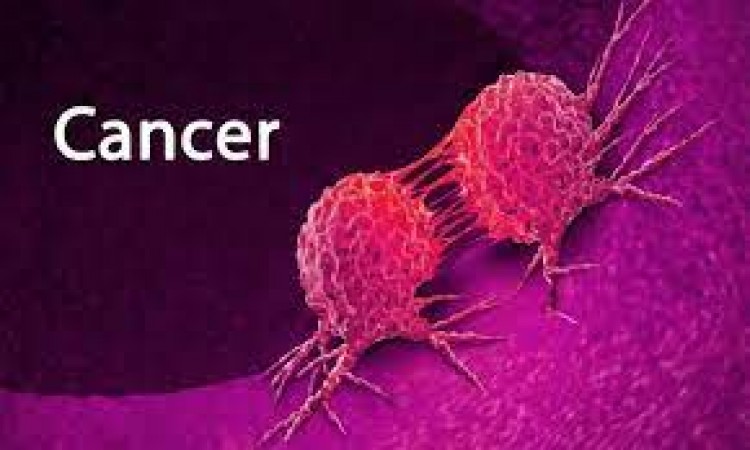
Cancer is a complex and devastating disease that affects millions of people worldwide. It is characterized by the uncontrolled growth and spread of abnormal cells in the body. This article aims to provide a comprehensive understanding of cancer, its causes, diagnosis, treatment options, and its impact on overall health.
1. What is Cancer?: Cancer is a term used to describe a group of diseases characterized by the abnormal growth of cells that have the potential to invade and spread to other parts of the body. These abnormal cells can form tumors or affect the blood and lymphatic systems. Cancer can develop in any part of the body and have varying degrees of severity.
2. Causes of Cancer: The development of cancer is influenced by a combination of genetic, environmental, and lifestyle factors. Some common risk factors include tobacco use, exposure to harmful chemicals and radiation, certain infections, a family history of cancer, and unhealthy dietary habits. While these factors increase the risk, it's important to note that not everyone exposed to them will develop cancer.
3. Common Types of Cancer: There are numerous types of cancer, each originating from different cells within the body. Some of the most prevalent types include breast cancer, lung cancer, colorectal cancer, prostate cancer, and skin cancer. Each type has its own unique characteristics, risk factors, and treatment approaches.
4. Signs and Symptoms: The signs and symptoms of cancer can vary depending on the type and stage of the disease. Some common symptoms include persistent fatigue, unexplained weight loss, pain, changes in the skin, a persistent cough, and abnormal bleeding. It's crucial to pay attention to any unusual changes in the body and consult a healthcare professional if you're concerned.
5. Diagnosis and Screening: Early detection plays a critical role in successfully treating cancer. Diagnostic methods such as imaging tests, biopsies, blood tests, and genetic screenings help identify the presence of cancer and determine its stage. Regular screenings for specific types of cancer, such as mammograms for breast cancer or colonoscopies for colorectal cancer, are recommended for individuals at higher risk.
6. Treatment Options: Treatment for cancer depends on various factors, including the type, stage, and overall health of the patient. Common treatment options include surgery, chemotherapy, radiation therapy, targeted therapy, immunotherapy, and hormone therapy. The treatment plan is tailored to each individual's needs and may involve a combination of these approaches.
7. Side Effects and Management: Cancer treatments can have side effects that vary in intensity and duration. These may include nausea, hair loss, fatigue, pain, and changes in appetite. Healthcare professionals provide supportive care and management strategies to alleviate these side effects and improve the patient's quality of life during treatment.
8. Living with Cancer: Cancer diagnosis and treatment can significantly impact an individual's physical, emotional, and social well-being. It's crucial to establish a strong support system, including healthcare providers, family, and friends, to navigate through the challenges. Adopting healthy coping mechanisms, engaging in self-care activities, and seeking emotional support can help enhance the overall quality of life.
9. Cancer Prevention: While not all cancers can be prevented, certain lifestyle modifications can reduce the risk of developing them. Avoiding tobacco and excessive alcohol consumption, maintaining a healthy weight, engaging in regular physical activity, protecting the skin from excessive sun exposure, and consuming a nutritious diet rich in fruits and vegetables are some preventive measures that can promote overall well-being.
10. Advances in Cancer Research: Ongoing research plays a vital role in understanding cancer and developing innovative treatments. Scientists and medical professionals continually explore new therapies, targeted treatments, and immunotherapies to improve patient outcomes. Clinical trials provide opportunities for individuals to access cutting-edge treatments and contribute to the advancement of cancer care.
11. Support Systems and Resources: Cancer support systems and resources are available to assist patients and their families throughout their cancer journey. These include support groups, counseling services, educational materials, financial assistance programs, and online communities. Connecting with these resources can provide valuable information, emotional support, and practical guidance during challenging times.
12. Psychological and Emotional Impact: A cancer diagnosis can elicit a wide range of emotions, including fear, anxiety, sadness, and uncertainty. It is important to address the psychological and emotional impact of cancer by seeking professional counseling, participating in support groups, and engaging in relaxation techniques such as meditation or mindfulness exercises. Emotional well-being is an essential aspect of the overall cancer care approach.
13. The Role of Nutrition: Proper nutrition plays a crucial role in supporting overall health and well-being during and after cancer treatment. A well-balanced diet consisting of a variety of nutrients can help maintain strength, manage side effects, and support the body's healing process. Healthcare professionals can provide personalized dietary recommendations based on individual needs and treatment plans.
14. Alternative Therapies: Complementary and alternative therapies, such as acupuncture, massage, yoga, and herbal remedies, are often used alongside conventional cancer treatments. While these therapies may provide additional comfort and support, it's essential to discuss their use with healthcare professionals to ensure they complement the overall treatment plan and do not interfere with its effectiveness.
15. Conclusion: Cancer is a complex disease that affects millions of people globally. Understanding its causes, early detection methods, treatment options, and supportive care is crucial to managing the disease effectively. By adopting healthy lifestyle practices, seeking early medical attention, and accessing available resources, individuals can improve their chances of prevention, early diagnosis, and successful treatment.
Louis Vuitton to make new Collection out representing the Travel
Dior to Launch its New Fragrance Inspired by the Nature
Identify the difference between diarrhea and stomach infection with these symptoms